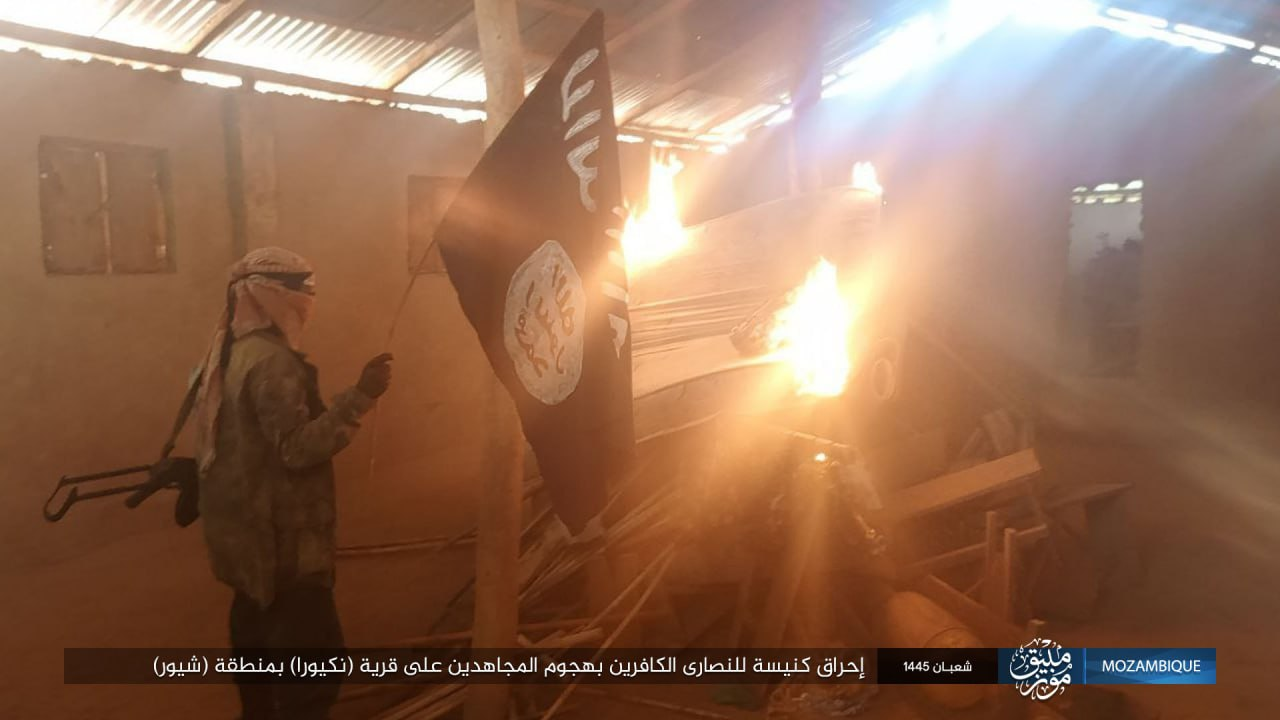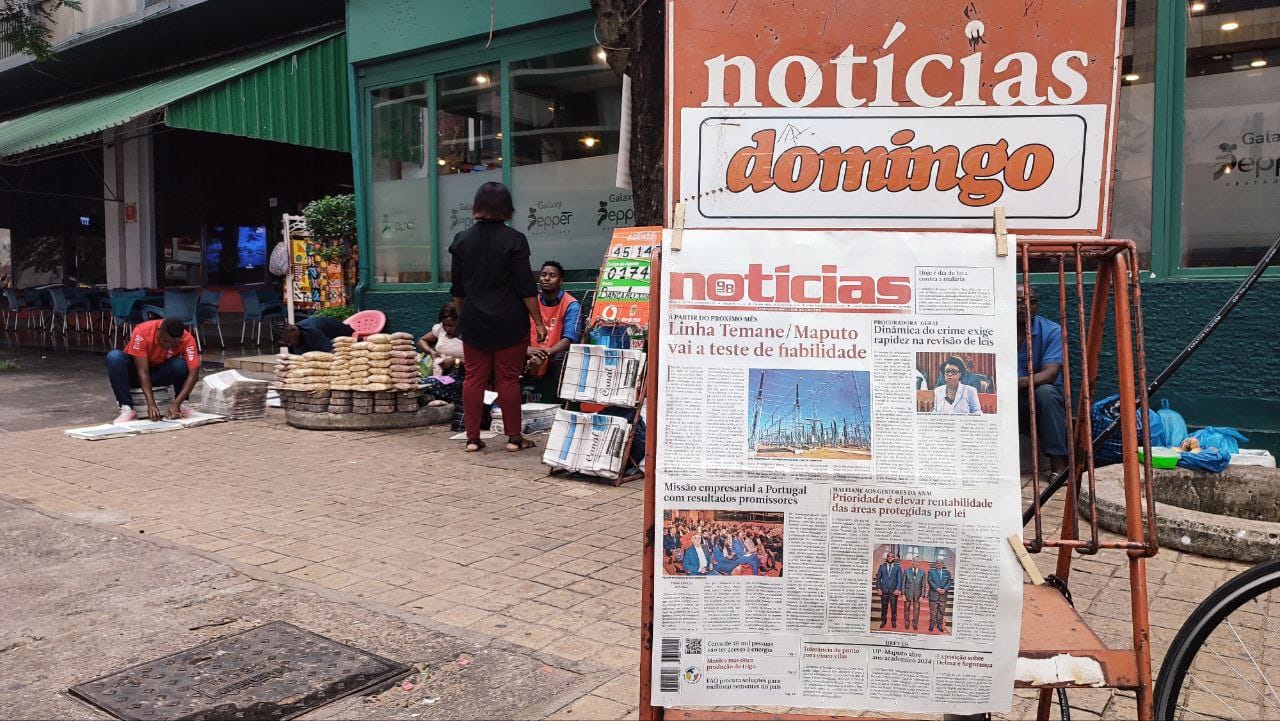First published as part of the Cabo Ligado Monthly: February 2024

In February, ISM mounted its largest sustained campaign of attacks on Christian property in Cabo Delgado province since the conflict began in 2017, claiming to have burned 18 churches in just three weeks. While ISM propaganda has always invoked the language of holy war against ‘infidels,’ these church burnings represent a novel effort to give effect to its rhetoric, consistent with other recent attempts to adopt the trappings of a real Islamic state.
The attacks were all concentrated in Chiúre district in southern Cabo Delgado, where insurgents launched an offensive in early February and spent much of the rest of the month marauding through villages, destroying buildings, and murdering civilians. In the IS newspaper al-Naba and on social media, insurgents claimed to have burned a total of 18 churches in nine villages in Chiúre. Many of these claims were accompanied by photos of fighters setting light to the churches and demolishing other Christian icons, such as crucifixes.
In a meeting of local church representatives, Dom António Juliasse, the Bishop of Pemba, said Christians in Cabo Delgado were living in a state of persecution, according to a Brazilian missionary who was present. Juliasse reportedly said that the church of Pemba was going through a “moment of tribulation” and that the diocese would refuse to pay any ransoms to free Christian hostages as this would only feed the insurgency — and that President Nyusi had been unhappy at a ransom having been paid by the previous bishop of Pemba, Dom Luís Lisboa, for the release of two Brazilian nuns abducted in Mocímboa da Praia in 2020.
Although the number of churches destroyed in this campaign is unusual, it is not the first time that insurgents have targeted Christian institutions. IS claimed responsibility for burning at least 10 churches in 2022, five of them during a surge of attacks in Ancuabe and Macomia districts in June. In September of that year, an insurgent offensive also saw a brief incursion into Nampula province, where fighters attacked a Catholic mission in Chipene, shooting dead an Italian nun and setting fire to the premises.
In May 2020, insurgents ransacked a Benedictine monastery and burned a Catholic hospital in Awasse, in Mocímboa da Praia district, prompting fears that insurgents were targeting Christian communities. Then Bishop Lisboa tried to allay these fears, pointing out that other buildings had also been destroyed. Cabo Ligado noted at the time that there was little evidence that the insurgents’ emphasis on attacking Christians in its propaganda was driving its targeting decisions.
With these latest attacks in Chiúre, there can be no doubt that insurgents are seeking out Christian targets. This appears to form part of a more general attempt to make good on its claim to embody a ‘caliphate,’ or Islamic government. After taking over Mucojo in Macomia in January, insurgents banned alcohol and imposed dress codes and haircuts based on a strict interpretation of Sharia law.
In February, insurgents also left behind a note in Quissanga district demanding non-Muslims pay a tax called ‘jizya’ and even formed checkpoints where they collected tens of thousands of meticais from passing drivers. Insurgents have been leaving notes such as this around Cabo Delgado since at least November 2022, but only this month have they started trying to enforce this tax.
Although the insurgency has been affiliated with IS since 2019, until recently, its objectives have largely been obscured by seemingly indiscriminate violence. The church burnings in Chiúre may be the culmination of a strategic realignment that seeks to clarify the group’s commitment to establishing an extreme idea of an Islamic state in Mozambique.










